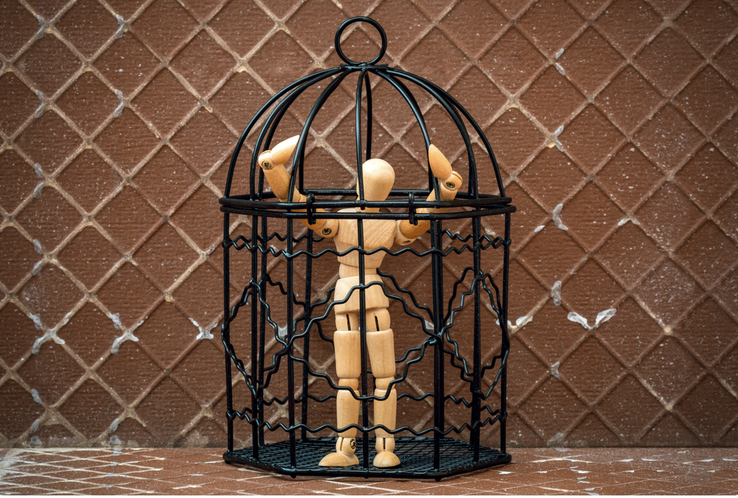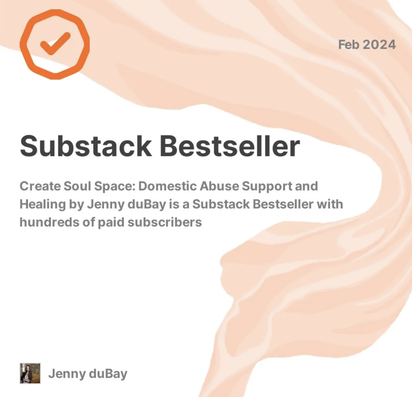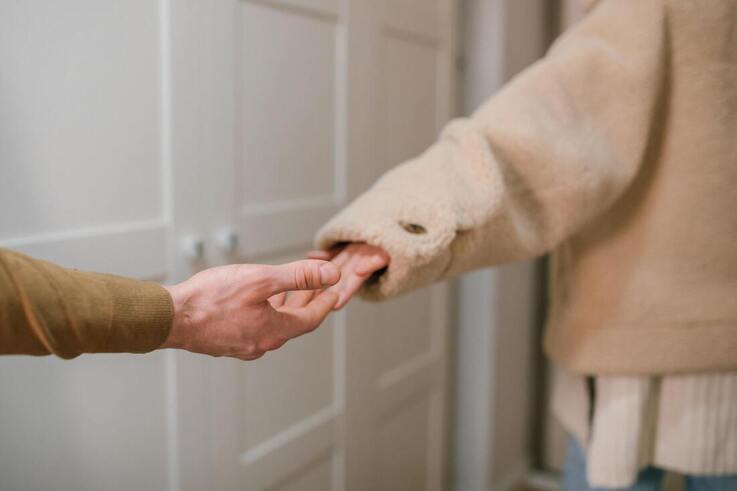|
I want to thank all of my faithful readers for your continued and enthusiastic support of my book, Don’t Plant Your Seeds Among Thorns: A Catholic’s Guide to Recognizing and Healing from Domestic Abuse. I’m so pleased to announce that the book has now been released! You can purchase a print or Kindle copy immediately on Amazon. However, if you would like a signed copy, head over to my website and purchase there. I don’t yet have my author copies in stock, so I won’t be able to ship until the week of April 22, 2024, but having your pre-order in ahead of time ensures that your book will ship the moment I have my stock. If you're reading this article after April 22, 2024, you can be assured of immediate shipping on all orders placed directly from my site. For a 10% discount, use coupon code READ10.
If you’re a paid Substack subscriber, contact me to receive an exclusive code that will give you a 20% discount on the purchase of a signed copy of my book.
0 Comments
Have you ever wondered if you’re a victim of physical violence within your own home, but you’re not quite sure? Or perhaps you haven’t wondered at all, because the threats have been so hidden that you haven’t recognized them. After all, he’s never hit you …
Even for those enduring physical abuse, the tactics aren’t always obvious. This may seem like a silly thing to say—after all, physical violence is always obvious, isn’t it? There will be an outright attack that results in bruises or scratches, broken bones or finger marks, perhaps even blood. Maybe an ambulance will have to be called, or the police. And there will be physical pain, of course, mingling and swirling with all the emotional pain … However, there’s more to physical violence than overt attacks on the body. Intimate partner violence can be so much more than that—which is why many people who are in physically abusive relationships don’t even realize it. Domestic abuse does a number on a person (and that’s putting it mildly). To be so betrayed—again and again—by the person you trust the most, love the most, and had the most faith in, is devastating. Just ask Jesus—He knows what that feels like. When I emerged from the frozen shock of abuse and began to heal, I felt like I’d spent the last decade sleeping my life away, cut off from the rest of the world, secluded in a void of my own making. I’d been hiding in the clefts of the rock so no one could hurt me any longer (Song of Songs 2:14). Betrayal trauma does that to a person, especially if the betrayal is a protracted one, spanning years or even decades. Infidelity, domestic abuse, the confusion of being brainwashed into thinking you’re the cause of every problem … All these issues naturally lead to self-doubt, a depletion of the spirit, and a desire to isolate in order to stay safe. I’ve always found Sacred Scripture to be of immense comfort as I struggled through my pain and healing. No matter where I’m at in life, Scripture has been my foundation. Even those verses that don’t provide help or consolation, but show the struggles of humanity and how God truly understands, are immeasurably reassuring. Within the pages of the Bible, no matter where I turn, there I find myself. “I call to God the Most High, to God who has always been my help. My soul lies down among lions. Their teeth are spears and arrows, their tongue a sharpened sword.” (Psalm 57:2,4) Yes! Especially during my lowest times I could completely relate to those verses, and found comfort in the relation. Yet as I began to open up to the possibility of finally healing from my wounds, I also knew — and trusted, and truly believed — that “my heart is ready, O God, my heart is ready” for His saving graces (Psalm 57:7).
Even so, there was one verse in the Bible that made me cringe. One verse that I couldn’t bear to read, because it made me feel sick to my stomach. It was a trigger, and a huge one at that. Before we dive into the next chapter of my book, Don’t Plant Your Seeds Among Thorns: A Catholic Guide on Domestic Abuse, I want to give a huge shout-out — filled with tremendous thanksgiving and gratitude — for the immense response to my book. In just the short time that it’s been incrementally released, I’ve been awarded the “Substack Bestseller” status due to the large increase in readers. Each subscriber helps me continue my ministry, so I’m truly grateful to all. I had no idea the response to my book would be so huge, yet it does speak to a lack in our Catholic culture, as I’m hearing so often from my clients, DV support group participants, and readers. So many groups, parishes and organizations in our Catholic community don’t want to touch the topic of intimate partner aggression, because it’s “too controversial.” Yet in reality, domestic abuse—even in Catholic marriages—is a sad fact. The most recent statistics report that about one-third of relationships are abusive—and this includes Catholic marriages. Even more so, with Catholic marriages, spiritual abuse is often at play. This isn’t a topic we should avoid as if it doesn’t exist. It’s one we need to face, head-on.
So again, thank you one and all! I’m filled with gratitude that, in whatever small way, I can help clarify the issues of intimate partner violence and what the Catholic Church teaches on abuse, personal dignity, mutual self-giving in relationships, and all aspects of healing and renewal. With that said, let’s get on with it! In chapter four of Don’t Plant Your Seeds, I cover the sad yet necessary topic of isolation. In my articles and on my website, I use a variety of terms to describe the crazy, traumatic, and often dehumanizing tactics deployed by an abusive personality against his or her target. Many of my readers are familiar with these terms, since they’re common to nearly all abusive relationships. However, a refresher is always good, and if you’re just becoming aware of what’s going on in your life and determined to educate yourself as much as possible, a list of these terms can be very helpful.
However, this list is just the tip of the proverbial iceberg—there are so many more I could mention, but I don’t want the article to run too long. If you have any other terms you’d like to add to the list, please share in the comments. How do we let go of a traumatic, disappointing, or abusive past? How can we forgive (including self), release, be healed, and move on?
Sadly, there is no magical wand. Christianity doesn’t offer magic, or the easy way out. Releasing the past doesn’t mean ignoring it, or running from it. Releasing the past means journeying straight through the trauma and the memories in order to reach the other side. And that’s the hard part. None of us are born to be trained in the ways of suffering. Most often we don’t know how to deal with it, which makes the struggle all the more exhausting. It’s like a marathon; you can’t complete the entire race the first time you try. You have to train for it. Train for suffering? That doesn’t sound fun. True. And it’s not fun—but it’s necessary, and can even be enjoyable because of the fragrant fruits to come (Rom. 8:28, Song of Songs 1:3). The reality is, releasing the past means running straight through it—and that’s tiresome. Most of us haven’t built up enough stamina for the entire journey. At some point we get stuck and when we do, it feels like we’ve fallen into the Molasses Swamp. How do we get unstuck? How can we begin to move forward again? Creating a safety plan is one of the crucial “what if” steps of preparation for individuals who are enduring abuse in their home. Crafting ways to carefully escape, to seek security with loved ones or in a domestic abuse shelter, to have all your necessary valuables (including your birth certificate, Social Security card, passport, etc.) in a safe place, are all important issues to consider when creating a physical safety plan.
But what about an emotional safety plan? During those times when you’re not in physical danger and don’t want to—or can’t—leave the home, how can you protect yourself emotionally and spiritually? Creating an emotional safety plan is just as important as a physical safety plan because it’ll help remind you that there is hope and that you do have resources. An emotional safety plan is crucial for self-care and even for developing healthy empowerment and a sense of autonomy. Healing from the wounds of prolonged trauma is a journey—it takes time, patience, and self-love. It’s often that last piece—self-love and self-care—that trip us up the most. There are many things we can do to take care of ourselves and help nurture a developing sense of wellbeing while healing from trauma. For example, creating a self-soothing basket filled with items that bring peace, joy, and calm can be an excellent resource for emotional health. Items to include in the basket can included things such as: Don’t Plant Your Seeds Among Thorns: A Catholic Guide on Domestic Abuse: Chapter One: An Overview of Domestic Abuse When the topic domestic violence is mentioned, people often visualize black eyes, broken bones and clenched fists. However, manipulation and control over another individual takes many forms. Domestic abuse can violate a person not only physically but emotionally, spiritually, psychologically, sexually and financially. Bruises, broken bones and smashed faces shout obvious violence, traumatic for the victim and outwardly visible. A broken spirit isn’t as visible, and bruises to the soul are easily buried with a false smile and cover-up stories to hide the truth. Yet in a multitude of studies and interviews, survivors have consistently affirmed that emotional, psychological and verbal abuse are even more traumatic than broken bones. All forms of abuse leave scars and bruises in the soul. These destructive actions aren’t isolated events. Everyone makes mistakes, saying and doing things they later come to regret. They soon recognize their slip-ups, make genuine reparation, and don’t repeat the toxic behavior. An abusive relationship, on other hand, is a pattern of attitudes and actions that create a confusing, terrifying, fragile and crazy-making atmosphere within what should be the sacred space of the home. The abuse is repeated, again and again. Even if months go by with no obvious incident, eventually the same pattern reappears—and, as the years go by, the pattern reappears with increasing frequency. Some examples of domestic abuse include:
The idea of "radical acceptance" doesn't sound like a pleasant thing, doesn’t it? In many cases, it doesn’t even seem possible. Are we truly supposed to accept unacceptable situations, such as abuse and injustice?
Strangely enough, the answer is yes—all while keeping in mind that acceptance doesn’t mean toleration of something that should never be tolerated. So what is radical acceptance, and how does it help us move through the stages of grief as we navigate healing from a toxic relationship? Don't Plant Your Seeds Among Thorns: A Catholic's Guide on Domestic Abuse by Jenny duBay Introduction The Catholic Church understands the true nature of marriage. The marital union isn’t merely a piece of paper and a few words spoken between two people, followed by a fun party. It’s not a gold band, or a promise to remain faithful—until disagreements pop up or someone more exciting comes along. For Catholics, marriage is a sacred sacrament, an indissoluble union that, according to The Catechism of the Catholic Church, is “a partnership of the whole of life … ordered toward the good of the spouses and the procreation and education of offspring” (CCC 1601). Love is “the fundamental and innate vocation of every human being” (CCC 1604). Yet what happens when the indissoluble becomes desecrated, when the sacrament promised at the altar in the presence of God proves to have been a lie? What happens when the early excitement of a loving relationship and future family are replaced with anxiety, confusion, turmoil and even cringing fear? Sacred Scripture describes well how such betrayal feels: "My heart is in anguish within me, fear and trembling come upon me, and horror overwhelms me. It is not an enemy who taunts me—then I could bear it; it is not an adversary who deals insolently with me—then I could hide from him. But it is you, my equal, my companion, my familiar friend. We used to hold sweet converse together; within God’s house we walked in fellowship." (Ps. 55:4,5,12-14) Every day, around the world, millions of individuals are crushed by the trauma of living with a spouse who controls, mistreats or otherwise violates their sacred personhood. The statistics are shocking: one out of every three women has been or currently is a victim of abuse within their own homes.1 Yet even if you’re among those statistics, you might be unaware of the truth of your situation. Instead, you may be full of self-blame and doubt—especially during the times when your spouse is acting kind, charming, even remorseful. It’s common for victims to minimize their experience, to believe their partner when he says they merely have “regular” relationship or communication problems. Victims often tell themselves, “It’s really not that bad. Sure, sometimes he calls me stupid or an idiot, but at least he’s never called me anything worse.” Or, if he does make it a habit to hurl even the most brutal insults, a target may try to minimize the situation by thinking, “Well, at least he’s never hit me.” If he is physically violent, “at least he’s never broken a bone.” If he has broken a bone, “At least I’ve never been knocked unconscious.” And on … and on. This minimization isn’t a deliberate effort to excuse the behavior of the abuser, but rather an unconscious defense mechanism that attempts to make sense of the nonsensical. To be the partner of an abusive spouse is to live in constant anxiety. Developing coping strategies is a necessary part of living in a toxic environment. Yet living in that environment doesn’t have to be permanent. Healing begins with awareness, education, support and guidance from the Holy Spirit. These are all things this book will help you develop. To continue reading the introduction to my book, along with future chapters as they're released please subscribe to my Substack newsletter. A paid subscription is necessary in order to read the book.
|
AuthorJenny duBay, Trauma-Informed Christian life coach specializing in healing from betrayal trauma and domestic abuse. |











